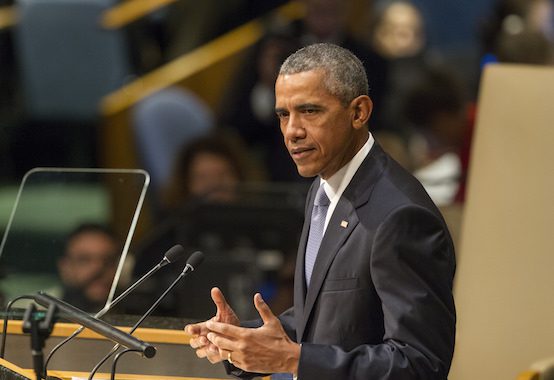The Cult of ‘Credibility’ Revisited

Nicholas Burns trots out the very tired “credibility” argument in a recent op-ed:
However much Mr Obama may believe the old rules do not apply, it is an ancient truth that a great power has to back up its threats if it wishes to be respected by its friends and feared by its adversaries.
If Mr Obama did not intend to honour his red-line threat, he should never have made it. The result was inevitable — American credibility is undeniably diminished in the Middle East while that of Vladimir Putin’s Russia has been enhanced.
The remarkable thing about the “credibility” argument is that its advocates never present any evidence for their case, and no amount of evidence proving the argument wrong has any effect on their confidence in the importance of “credibility.” Burns says that it is an “ancient truth,” and apparently no more investigation of the question is needed. He makes the mistake of treating all threats and promises as if they have equal value and significance, but we know very well that they are not. Choosing not to back up a stupid or ill-conceived threat may have no effect on how a great power’s threats and promises are perceived. It may even give its formal commitments greater weight because the great power isn’t diverting resources to conflicts where its interests are negligible. More often than not, the course of action that hawks believe is necessary to preserve “credibility” in the eyes of allies and adversaries appears dangerous and mystifying to both.
Burns asserts that American “credibility” is “undeniably diminished” by the 2013 Syria episode, but there is no proof that this is so, just as there is scant evidence that Russian “credibility” has increased. It is simply taken for granted that U.S. “credibility” has been lost because that is what proponents of this view believe must have happened after the decision not to bomb Syria, and so we are told that it is undeniable that it has. But the supposed diminution of “credibility” never took place, and claims that it did have been debunked again and again. One of the more common claims made by the “credibility”-obsessed was that Russia intervened in Ukraine because the U.S. didn’t bomb Syria, and this has been shown to be completely false.
The point of making such unfounded claims wasn’t to make observations about the workings of international politics, but to agitate for more aggressive policies in both Syria and Ukraine. Hawks imagine that the U.S. risks the “credibility” of its threats and promises if it doesn’t start new wars or if it tries to conclude old ones, and they insist on taking reckless actions that can’t be justified except as a way to ward off an imaginary loss of “credibility.” As I put it a few years ago:
Of course, “credibilty” is most often cited as a reason for military action when there are no other credible reasons for war. It is the preferred pretext that hawks use to make unnecessary wars important for U.S. security, and it is a favored tool of demagogues that want to embarrass an administration without taking responsibility for the foolish policy they are supporting. Invoking the danger of lost “credibility” is almost always a scare tactic designed to make people stop thinking about the absurdity of the proposed policy and to worry about other, unrelated problems that will somehow be made worse if the bad policy isn’t implemented.
The funny thing about the cult of “credibility” in our foreign policy debates is that the only people that think that U.S. “credibility” has been weakened over the last few years are the ones that belong to the cult, and the people in other governments that are supposed to be influenced by U.S. action or inaction don’t seem to care about it and they don’t appear to take it into account when making their own decisions.